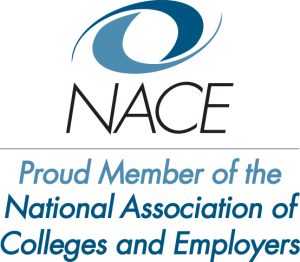The 3 Pillars of Impactful Coaching
According to the 2019-20 NACE Career Services Benchmarking Report, over 55% of career development professionals’ time is spent on student-facing activities. That’s a statistic that makes sense: after all, if the goal of career development is student success, it’s no wonder that professionals are prioritizing student interaction in their jobs.
But how do you ensure that time is well-spent? We rounded up three best practices that can help you increase the impact of your career coaching and interactions with students.
1. Listen more than you speak.
Many students come to the career center seeking advice–and as a coach, it can be tempting to play the part of the sage imparting wisdom to the student. But rather than doling out advice and anecdotes from our own lives, it’s important for coaches to listen more than we speak.
This is often easier said than done, especially when students come to the career center seeking cut-and-dry answers to big questions like, “What should I do with my life?”
Check out three best practices that can help you increase the impact of your career coaching and interactions with students via @Pathway_U:Click to TweetAsking students to explore the assessments and resources in PathwayU before their coaching session can be a great way to ensure they come to the appointment in the right frame of mind. By taking the time beforehand to think about their own interests and values, students are more likely to enter a coaching appointment ready to lead the conversation–and that’s exactly what you want to happen as a coach.
2. Inspire their imagination.
Career coaching is a future-focused activity–and that means an important component of any coaching session has to include a dose of imagination.
One of my favorite questions to ask in coaching sessions: “What would you do if there were no obstacles in your way?”
This is an immensely powerful question. Many students have never taken the time to imagine their future with no obstacles or limitations. Offering them the chance to let their imagination go wild–to imagine a future of their own design–can open up entirely new pathways for career exploration.
It’s not uncommon for a student to feel that there are limitations on what they can do with their life. Maybe they are a first-generation student whose family places high expectations on their career–expecting them to become a doctor or a lawyer. Maybe they’ve never seen an example of someone who looks like them working in a particular field and so never considered it an option. Or maybe they simply don’t know what their options are.
Giving students permission to dream without limitations can often lead to exciting new discoveries in the career coaching process.
3. Prioritize goal-setting.
Once students have taken the time to imagine and dream, it’s time to begin designing a path forward.
PathwayU offers helpful tools in doing just that. Once students have a firm grasp of their own interests, strengths, and values, they can begin visualizing possible pathways to their own version of a successful and meaningful career.
Career coaching is an invaluable part of the career development process in college, see 3 best practices to help boost the impact of #Coaching in the latest blog via @Pathway_U:Click to TweetPathwayU provides direct connections between students’ assessment results and potential careers through its career match tool, which allows students to explore career paths that match their personalized results. And once a student has identified the potential careers they would like to pursue, they’re just a click away from a wealth of information–including expected salaries, typical job duties, and the steps they should take to find success in that field.
As the coach, this is where you can start providing plenty of concrete tools to help them move forward–including the job board in PathwayU, where they can find internships and jobs that match their career goals.
Career coaching is an invaluable part of the career development process in college. By taking the time to listen to students’ wants and needs, inspiring them to dream big and imagine bold paths forward, and helping them to plan concrete steps to make those dreams reality, coaches can guide their students to success and purpose.
PathwayU contributor Jen Gose is a writer with over eight years of experience working in higher education, including career education.
-1.png?width=288&height=67&name=PathwayU_PGLogo%20(1)-1.png)
.png)










